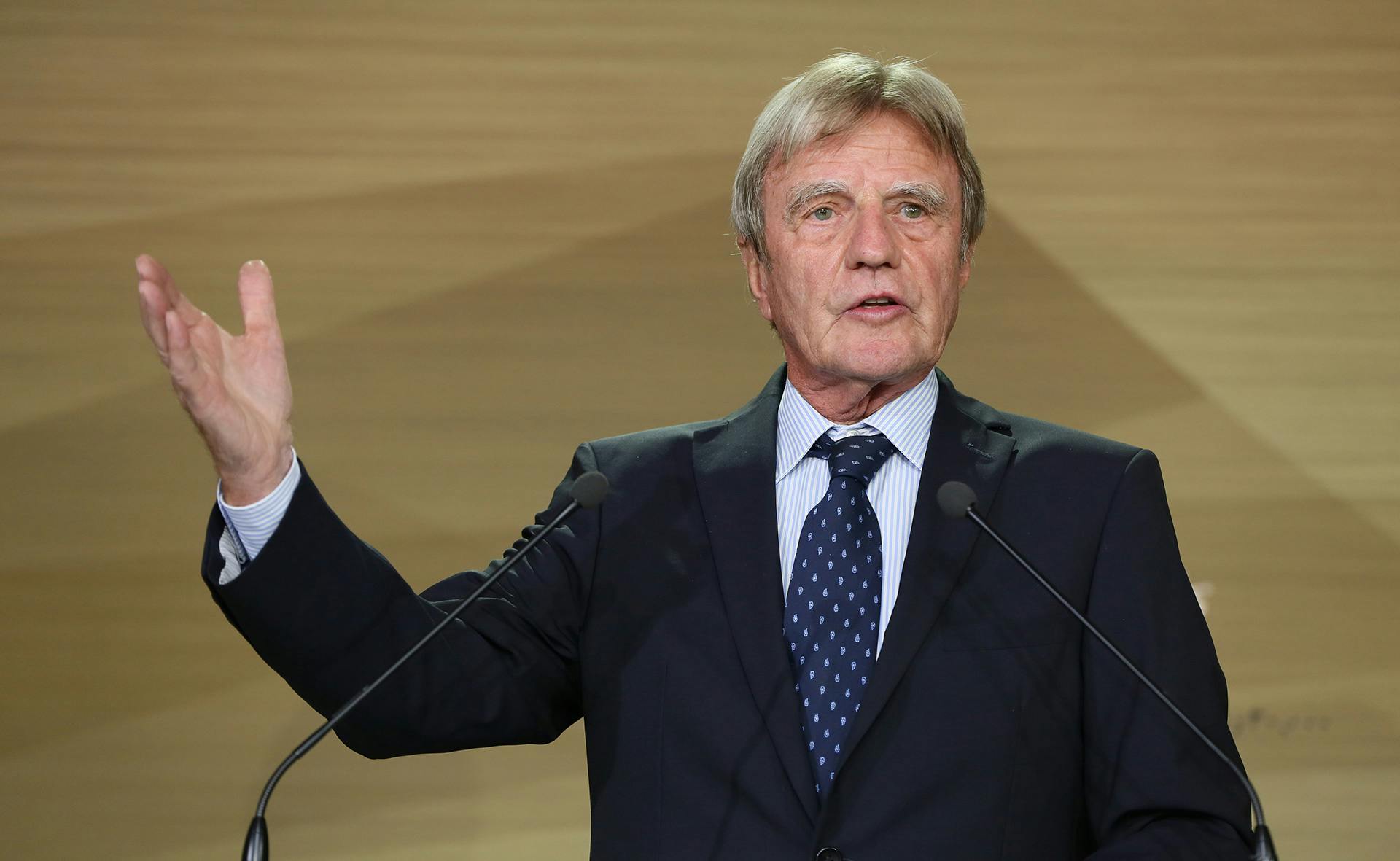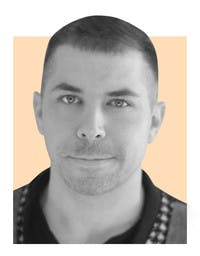Building and managing emergency hospitals in Yemen. Challenging cost-prohibitive patents on life-saving drugs. Overseeing medical treatment at Syrian refugee camps. These are just some of the projects launched by Doctors Without Borders (Médecins Sans Frontières/MSF) and Doctors of the World (Médecins du Monde/MDM), two French-born NGOs that exist to alleviate the suffering of people in crisis.
Their approach offered a major departure from the sometimes cold-seeming neutrality offered by orgs like the Red Cross. Dr. Bernard Kouchner, who co-founded MSF, told the Carnegie Council: “Neutrality, never. Don’t confuse those who are hit by bombs with those who are throwing the bombs. Impartiality, yes—we have to take care of all of the victims on both sides.”
But in spite of the radical mission MSF and MDM still share, they were actually born from an ideological schism that split one NGO into two.
Doctors Without Borders first began to take form in May 1968, when a group of young French doctors grew disenchanted with the way the Red Cross was handling a project in Nigeria. Massive violence had broken out in the nation over the secession of the province of Biafra. The Nigerian military completely surrounded the tiny territory and cut off all supplies, causing massive famine for the Biafran people. The French Red Cross enlisted volunteers to help provide medical aid.
Max Recamier, Pascal Greletty-Bosviel, and Bernard Kouchner were three doctors who joined the effort. They were truly unprepared for the level of violence and suffering they witnessed during their work. The conflict even threatened them personally, as the hospitals in which they operated were often targets of the Nigerian military.
The circumstances of the conflict also severely limited the level of impact they could make. Emergency medical care couldn’t stop the leading cause of death: the mass famine and starvation of Biafrans caused by military blockades. Before long, the doctors were openly criticizing not only the Nigerian government, but also the Red Cross, as being complicit in the military’s human rights violations because it was doing doing nothing to advocate against it. They began to imagine what humanitarian aid would look like if it ignored political and religious boundaries in order to prioritize the welfare of everyone suffering, regardless of what “side” of any given issue they fell on.
In 1971, two journalists from the medical review Tonus proposed establishing a band of doctors to aid people suffering from major disasters around the world. Recamier, Greletty-Bosviel, Kouchner, and the other “Biafrans” who had been dreaming of such an organization jumped at the opportunity to actually create it. Doctors Without Borders was officially formed on December 22, 1971, with 300 volunteer doctors, nurses, and journalists, among others.
“It’s simple really: go where the patients are,” Kouchner said of the organization’s mission. “It seems obvious, but at the time it was a revolutionary concept because borders got in the way. It’s no coincidence that we called it ‘Médecins Sans Frontières.’”
Less than a decade later, however, Kouchner was feeling hemmed in by the very organization he had helped create.
While there are conflicting accounts of exactly what happened, the schism between Kouchner and MSF came to a head in 1979. “There was a very real opposition between people who didn’t want things to become structured—who wanted to stay a small commando unit of emergency doctors—and others who wanted to get organized,” said Claude Malhuret, who served as the organization’s president from 1977 to 1978. “They didn’t want to become a sort of Red Cross, but nonetheless [they wanted] to be more organized than we were. Not just doctors pitching up with a few drugs in a plastic bag and not enough to work with.”
According to the Doctors Without Borders website, at MSF's Annual General Assembly in 1979, a vote was made on whether the organization should become more formal, or remain a band of guerrilla doctors. Eighty percent voted in favor of organizing, prompting Kouchner to leave and found Médecins du Monde, or Doctors of the World.
According to Renee C. Fox in a December 1995 issue of Social Science & Medicine, the split occurred over a disagreement in how to handle the crisis of the so-called Vietnamese “boat people,” who were drowning en masse in the South China Sea while trying to escape conflict in their homeland. Kouchner wanted Doctors Without Borders to charter its own vessel and try to save as many of these people as possible—potentially staking all the organization’s resources and reputation on the effort. Though he was allegedly backed by many of his peers, most of the younger members of Doctors Without Borders believed this particular project was beyond the capabilities and scope of the organization. There was also discontent with the autocratic way he tried to direct MSF’s efforts and discomfort about his inordinate focus on publicity and spectacle. The sources Fox spoke had varied options or what happened: either Kouchner was "betrayed" and "expelled" from MSF, forcing him to create MDM, or he pulled a coup in order to hold onto power.
Since its inception, Doctors of the World has developed parallel to the organization it spun off from. Even now, their mission statements are very similar. On the MSF website, the organizations sums up “What We Do” as “Providing lifesaving medical humanitarian care, and speaking out about what we see.” Doctors of the World describes itself as “an international humanitarian organization that provides emergency and long-term medical care to vulnerable people while fighting for equal access to healthcare worldwide.” Both of them are independent organizations in that their funding comes entirely from donors rather than governments.
The primary difference is in the personas they wish to maintain. Doctors Without the Borders, arguably the larger of the two in terms of revenue, prioritizes its staying power, while Doctors of the World tends to operate as a scrappier, more fiery activist NGO.
Kouchner defended his publicity-seeking ways as integral not only to rallying support for aid, but ending the root causes of a crisis on the cultural or policy levels. In 2004 he said during a Morgenthau Memorial Lecture, “The media creates pressure on public opinion. Without this pressure, there is no pressure on politicians, who are sensitive only to pressure from people within their own countries.”
The lack of pressure, however, is exactly what why some thing Doctors Without Borders is so effective.
“I think neutrality is critical,” says Scott Lea, a Doctors Without Borders field coordinator who spoke to Overture after returning from a project in Cross River State, Nigeria. “In many instances, it’s a key part of us being able to access beneficiaries to be able to explain to actors, whether they’re government or non-state actors, who we are, and that we’re not part of the conflict. Whereas, if we came in with an agenda, if we came in with a bias or support from a particular government, very often that can make access to beneficiaries even more challenging. [At an even] more micro level, if beneficiaries don't see us as neutral, then very often they would be less willing to accept or to access services that we provide.”
Still, the organization being less focused on publicity and strong public stances has contributed to more than its fair share of criticism. As a subheading in a 2013 Smithsonian story put it, “The non-governmental organization concedes it sometimes pays a moral price to save lives.”
In that same article, Shannon Scribner, Oxfam America’s humanitarian policy manager, said, “We’ll be political when other organizations won’t.” But she questions, “Are you saving more lives by staying and not speaking out?”
MSF is currently adamant that it does speak out against atrocities, though it's unclear if this is in response to previous criticisms. In the Spring 2018 issue of Dispatches, the Doctors Without Borders Canada magazine, an article clarified, “For Doctors Without Borders/Médecins Sans Frontières (MSF), neutrality is not the same as staying silent. It’s nuanced and even controversial. MSF reserves the possibility to speak in public about massive human rights violations and crimes of humanity, including genocide. Impartiality reminds us that all individuals are equally susceptible to suffering, and no one should be deprived of the assistance he or she needs.”
Neutrality and bias have the potential to both harm and help an organization on every level, from actual operations to success of fundraising campaigns.
Dr. Anjhula Mya Singh Bais, a psychologist operating in another sector of humanitarian aid as Chair of Amnesty International Malaysia, has seen this firsthand. “We at Amnesty are apolitical,” she tells Overture. “We do not get involved with political parties, we however campaign to the right to hold free, fair, and democratic elections. That neutrality makes both parties interested in us and wanting to engage us, which can be good to get a dialogue going. In other cases, such as our move to abolish the death penalty without exception, we are not 'neutral' on that position, because of socio-, cultural and religious considerations. Many people do not feel like contributing [as a result,] because Amnesty is viewed as going against their moral beliefs of, say, ‘an eye for an eye.’ I think what is a good idea is what the founder of my alma mater, University College London, said. The philosopher Jeremy Bentham believed ‘the greatest amount of good for the greatest amount of people,’ and as such, NGOs should take that into consideration when deciding whether to employ a neutral strategy.”
With the complexity of crises around the globe increasing, the current thinking around neutrality within the entire humanitarian aid field is likely to continue evolving.
Lea says, “If you look at things like with the Rohingya refugee crisis in Bangladesh, things like Yemen, the scale of the crises is getting bigger. . . . They're getting more and more complex . . . in terms of what causes conflicts, but also how easy it is for many different groups to be involved. There are so many different interests now—it's not just, you know, two groups fighting against each other within one country. External influences are supporting for one reason or another.”
Aside from cases like the Rohingya crisis, proxy wars -- largely puppeteered by the military superpowers of the world -- have proven to be the bloodiest collection of conflicts in the entire history of our species. As the masses continue to gain clarity about the true cost of this bloodshed, we might fast be approaching a time where “neutrality” is as simple as naming military conflict as the abomination that it is.











